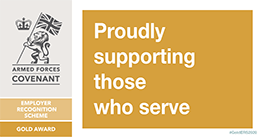Cookie Statement
What are cookies?
Most websites use cookies to increase efficiency of use, which makes your visit to a website a more enjoyable experience. One of the tasks cookies perform is to enable a website to remember you. A website without cookies assumes you are a new visitor every time you move to a new page, so you have to keep repeating the login process. Cookies let you navigate easily between pages and store your preferences. In other words, cookies make everything faster, easier and more efficient.
On this site, we use cookies to remember information about your browsing habits, so that we can make it easier for you to access things like the on-line resources you use, your favourite pages, and how often you visit them. Cookies do not gather any information which is personally identifiable.
How do they work?
A cookie is a text file that is stored on your computer or mobile device by a website’s server; only that server can retrieve or read the cookie contents. Each cookie is unique to your web browser.
How to disable cookies
You can choose whether or not you accept or decline cookies. Most web browsers automatically accept them, but if you prefer, your browser setting can be modified to decline them – the Help function will guide you through the process. Declining cookies will, however, prevent you from taking full advantage of the website. For more information, visit www.aboutcookies.org
Data Protection Statement Used By High Life Highland
Data Protection – the information you have supplied will be used for the purpose(s) for which you have provided it. High Life Highland will also use it to plan improvements and to meet our obligations in delivering services on behalf of The Highland Council. This data will be maintained in accordance with the Data Protection Act 1998 and will not be passed on or sold to any other organisation without your prior approval, unless there is a legal requirement to do so.
Subject Access Requests
High Life Highland may hold personal information about you. We believe it is very important to work in partnership with you and that you should play a part in what is recorded about you. Information about you may be recorded in several ways – e.g. in a personal file, in a project file, or on a Computer Information Database. Both systems are treated confidentially and are kept in a secure manner.
Under the Data Protection Act 1998 you have rights to be informed and to see what information is held about you.
To ask for personal information held about you please read the Subject Access Request – Information Guide below and then complete the ‘Subject Access Request Form’.
Downloads



